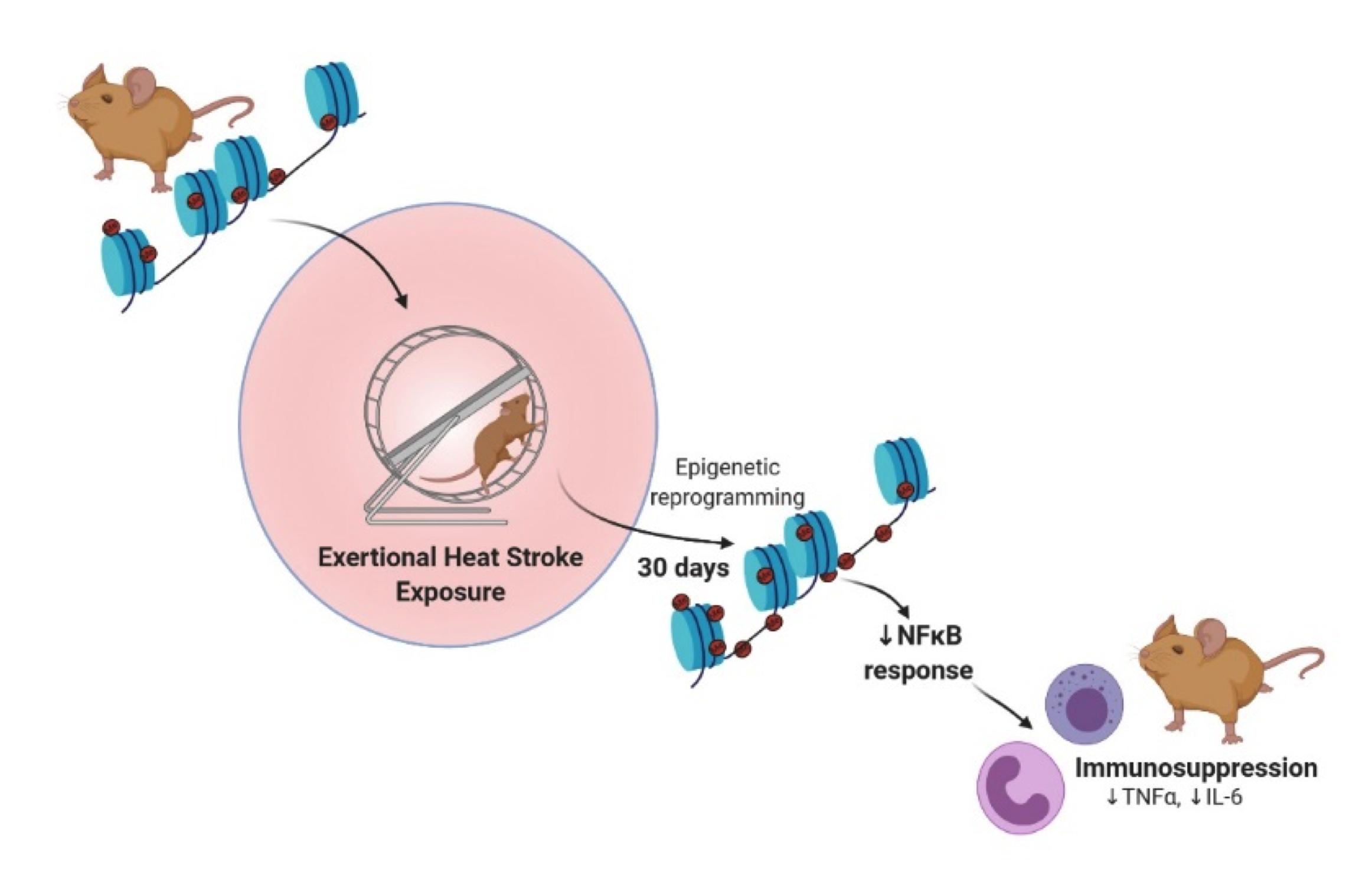 HHP - Update me in site_config > General Configuration
HHP - Update me in site_config > General Configuration
Oct. 12, 2020
Recent epidemiological evidence in humans suggests that exposure to heat stroke or heat illness increases the odds of acquiring cardiovascular and renal diseases later in life. However, the pathobiology underlying these long term health outcomes has remained elusive. A collaborative team at University of Florida from the Department of Applied Physiology and Kinesiology in the College of Health and Human Performance and the Department of Biochemistry and Molecular Biology in the College of Medicine have found a possible molecular mechanism that may underlie these long-term health consequences.
“One of the most interesting findings was the behavior of immune cells, one month after mice were exposed to exertional heat stroke (estimated to be about 3 human years),” said Kevin Murray, a Ph.D. candidate who was lead author on this study. “They were almost unresponsive to a simulated infection compared to matched control samples.”
The principal investigator, Thomas Clanton, Ph.D., the BK and Betty Stevens Professor in Applied Physiology and Kinesiology, stated “When information about long-term health problems from heat stroke started to emerge from the clinical literature, my co-investigator, Michael Kladde, and I immediately expected an epigenetic mechanism.”
 Figure provided by Thomas Clanton, Ph.D.
Figure provided by Thomas Clanton, Ph.D.
By studying the DNA of immune cells, the investigators were able to identify literally thousands of genes that had significantly altered methylation patterns on their DNA, one of the primary sources of epigenetic information. Many of these alterations could predict a suppression of the cells’ immune responses. Since many patients recovering from a variety of forms of heat stroke have difficulties with chronic infection, this finding may very well apply to the human condition.
The long-term goal of the project is to develop epigenetic biomarkers to identify subsets of patients, athletes or military personnel who may become susceptible to health consequences of an altered immune system.
“We are really only at the beginning stages of this research, but are hopeful that it will lead to the development of new strategies to prevent or reverse adverse effects of heat stroke exposure,” said Clanton.
This phenomenon may become increasingly relevant with the ongoing changes occurring in the environment.
The results of this study, supported by the U.S. Department of Defense and Bankhead-Coley Cancer Research Program, were published in the Journal of Physiology.
Read more at psycho.onlinelibrary.wiley.com >